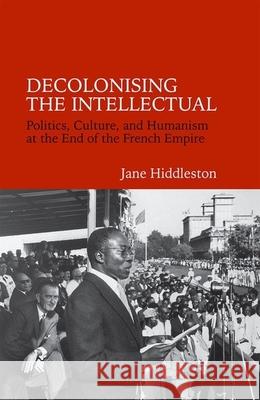Decolonising the Intellectual: Politics, Culture, and Humanism at the End of the French Empire » książka
Decolonising the Intellectual: Politics, Culture, and Humanism at the End of the French Empire
ISBN-13: 9781781380321 / Angielski / Twarda / 2014 / 288 str.
Decolonising the Intellectual: Politics, Culture, and Humanism at the End of the French Empire
ISBN-13: 9781781380321 / Angielski / Twarda / 2014 / 288 str.
(netto: 559,91 VAT: 5%)
Najniższa cena z 30 dni: 571,43
ok. 30 dni roboczych.
Darmowa dostawa!
Francophone intellectuals writing in the lead-up to the decolonisation were faced with an impossible dilemma. How could they redefine their culture, and the 'humanity' they felt had been denied by the colonial project, in terms that did not replicate the French thinking by which they were formed? Figures such as Senghor, Cesaire, Fanon, Amrouche, Feraoun and Kateb were all educated, indeed immersed, in French culture and language, yet they intervened forcefully in political debates surrounding decolonisation and sought to contribute to the reinvention of local cultures in a gesture of resistance to the ongoing French presence. Despite their pivotal role during this period of upheaval, then, their project was fraught with tensions that form the focus of this study. In particular, these writers reflected on the relation between universality and particularity in intellectual work, and struggled to avoid the traps associated with an over-investment in either domain. They also all learned from metropolitan French humanist thought but strove continually to reinvent that humanism so as to account for colonised experience and culture. Their work also readdresses the ongoing question of the relation between literature or culture and politics, and testifies to a moment of intense dialogue, and potential conflict, between contrasting but complementary spheres of activity.
"











